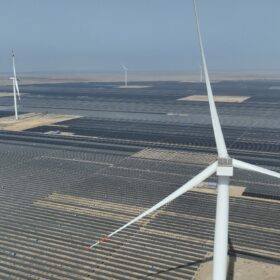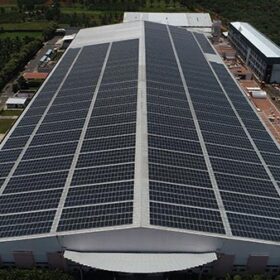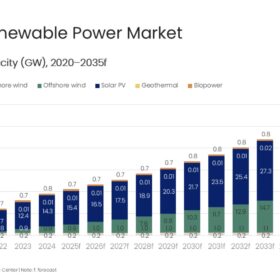India’s solar capacity additions on track: SBICAPS
India is estimated to have added a record 40 GW of solar capacity in CY 2025, supported by strong utility-scale execution and a surge in rooftop installations. Energy storage tendering also picked up pace.
Clean-tech startups are quietly turning India’s air pollution crisis into a renewables opportunity
Startups are rewriting the narrative of India’s environmental challenge by building a bridge between air quality restoration and renewable energy expansion—a synergy that promises to fundamentally reshape how India confronts both crises simultaneously.
Adani Green Energy arm signs agreements to supply solar-wind hybrid power to Asahi India Glass
Adani Green Energy Twenty Five B Ltd, a wholly owned step-down subsidiary of Adani Green Energy Ltd (AGEL), has entered into key agreements for the supply of 20.8 MW of solar-wind hybrid power to Asahi India Glass Ltd (AIS). The power will be supplied from a 25 MW solar power plant unit and a 20.8 MW wind power plant unit, both located at Khavda, Gujarat.
Bondada Engineering commissions 120.46 MWp of solar capacity
Bondada Engineering Ltd has commissioned 120.46 MWp of solar power capacity in December 2025 for clients including Paradigm IT, Maharashtra State Power Generation Co. Ltd (MAHAGENCO), and NLC India Ltd.
Tata Power Renewables installs 1 GWp rooftop solar capacity in 9M FY2026
Tata Power Renewable Energy added more than 1 GWp rooftop solar capacity within the first nine months of FY26—a 125% YoY growth over 444.78 MWp installations achieved in the corresponding period of FY25.
Shakti Pumps wins INR 23.54-crore solar pump order in Haryana
Shakti Pumps (India) Ltd has received a work order from the Haryana Renewable Energy Department (HAREDA) for the supply and installation of 792 solar water pumping systems across the state under Component-B of the PM-KUSUM scheme.
India’s 2025 renewable energy sector review: Key highlights and way forward
With record 40+ GW solar and wind installations (solar: 34.9+ GW, wind: 5.8+GW), 2025 has marked yet another high point in Indian annual renewable capacity additions. The capacity additions have been driven by strong project momentum across all solar segments.
Taiwan on track to deploy 31.2 GW of solar by 2035
UK-based GlobalData says Taiwan is on course to more than double its current solar capacity by the end of 2035.
India’s energy transition has shifted gears decisively
India is moving decisively beyond capacity addition toward system-level maturity. Expanded transmission planning, a more diversified energy mix and better regulatory clarity signal a market design that is becoming ever more dynamic and future ready.
WattPower surpasses 18 GW of inverter sales in India
WattPower has sold more than 18 GW of utility-scale string inverters across India over the last two and a half years.














